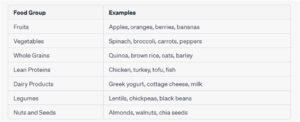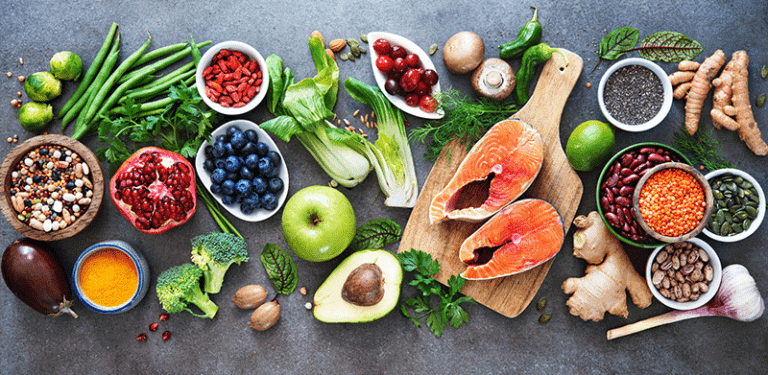Introduction
Incorporating nutrient-rich foods into your diet is essential for maintaining a healthy lifestyle. Making the right food choices can have a profound impact on your overall well-being, providing you with the necessary nutrients to support your body’s functions. In this article, we will discuss the importance of changing your diet and offer valuable tips on selecting nutrient-rich foods.
Why Change Your Diet?
Opting for a healthier diet offers numerous benefits for your body and mind. By making informed choices about what you consume, you can:
Enhance your energy levels
- Boost your energy levels: Nutrient-rich foods provide the necessary fuel to keep you energized throughout the day.
- Strengthen your immune system: A balanced diet rich in essential nutrients supports a robust immune system, helping your body defend against illnesses and infections.
- Maintain a healthy weight: Nutrient-dense foods can help you achieve and maintain a healthy weight, reducing the risk of obesity and related health conditions.
- Reduce the risk of chronic diseases: Eating a variety of nutrient-rich foods can lower the risk of chronic diseases such as heart disease, diabetes, and certain types of cancer.
- Enhance mental clarity and focus: Proper nutrition is vital for optimal brain function, supporting mental clarity, focus, and overall cognitive performance.
Key Factors in Choosing Nutrient-rich Foods
When it comes to choosing nutrient-rich foods, consider the following factors:
1. Macronutrient Balance
A balanced diet consists of an appropriate balance of macronutrients, namely carbohydrates, proteins, and fats. Aim to include these macronutrients in each meal to ensure you get a variety of nutrients.
2. Micronutrient Content
Micronutrients, such as vitamins and minerals, are crucial for optimal health. Incorporate a wide range of fruits, vegetables, whole grains, lean proteins, and dairy products to obtain an array of micronutrients.
3. Fiber-rich Foods
Fiber plays a vital role in digestion and helps maintain a healthy gut. Include high-fiber vitamin foods like legumes, whole grains, nuts, and seeds in your diet to support digestive health.
4. Antioxidant-rich Choices
Antioxidants help protect your cells from damage caused by harmful free radicals. Opt for foods like berries, dark leafy greens, and colorful vegetables to increase your antioxidant intake.
5.Minimally Processed Options
Processed foods often lack essential nutrients and may contain unhealthy additives. Opt for whole, minimally processed foods to maximize your nutrient intake.
Nutrient-rich Foods to Include
Here is a list of nutrient-rich foods that you can incorporate into your diet:

Remember to choose organic, locally sourced options whenever possible to ensure the highest quality and nutritional value.
Incorporating Nutrient-rich Foods into Your Diet
Changing your diet and incorporating nutrient-rich foods can be a gradual process. Here are some tips to help you get started:
Plan your meals: Take time to plan your meals for the week, ensuring they include a variety of nutrient-rich foods from different food groups.
Shop smart: Make a grocery list that prioritizes fresh produce, whole grains, lean proteins, and healthy fats. Stick to your list to avoid impulsive purchases of processed foods.
Cook at home: Cooking your meals allows you to have full control over the ingredients used. Experiment with new recipes that incorporate nutrient-rich foods and flavors.
Make gradual changes: Start by replacing one unhealthy food item with a nutrient-rich alternative. For example, swap sugary snacks with fresh fruits or opt for whole grain bread instead of white bread.
Stay hydrated: Water is essential for overall health. Drink an adequate amount of water throughout the day to stay hydrated and support digestion.
Be mindful of portion sizes: While nutrient-rich foods are beneficial, it’s important to consume them in appropriate portions to maintain a healthy weight.
Seek professional advice: If you have specific dietary needs or health concerns, consider consulting a registered dietitian or nutritionist who can provide personalized guidance.
For more information : https://healthystories.net/category/vitamin-nutrition/
Conclusion
Changing your diet to incorporate nutrient-rich foods is a positive step towards better health. By considering macronutrient balance, micronutrient content, fiber, antioxidants, and opting for minimally processed options, you can create a balanced and nutritious eating plan. Start small, gradually introducing healthier choices into your meals, and watch your overall well-being flourish. Make informed decisions about what you consume, and enjoy the benefits of a nutrient-rich diet.


1 thought on “Changing Your Diet | Choosing Nutrient-rich Foods”